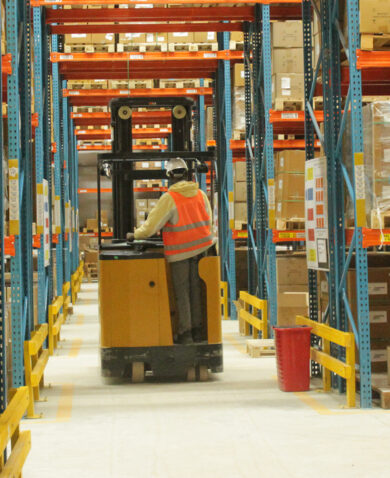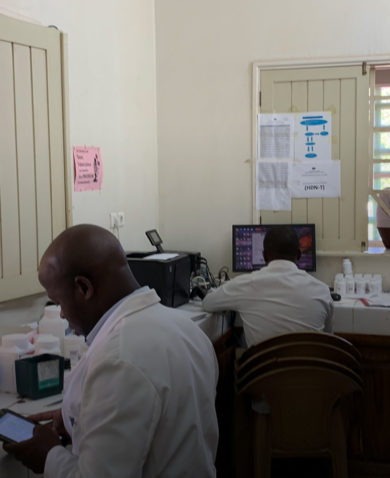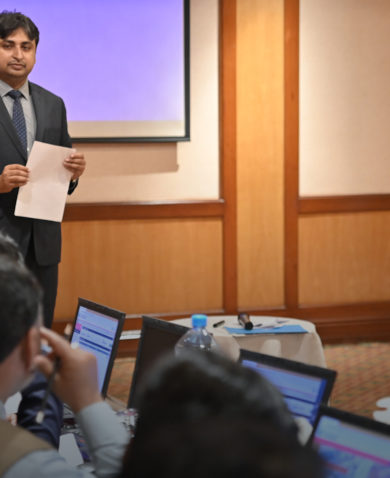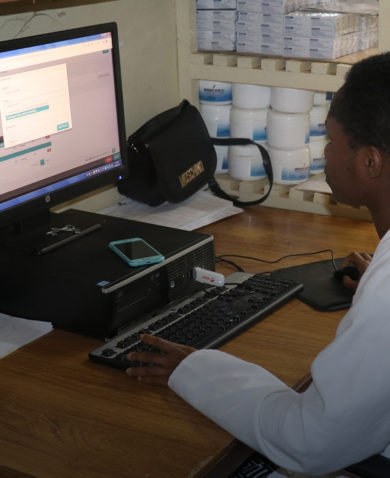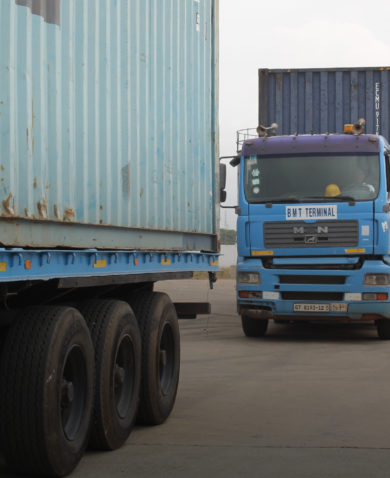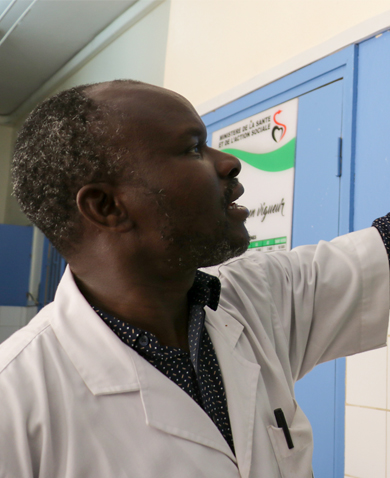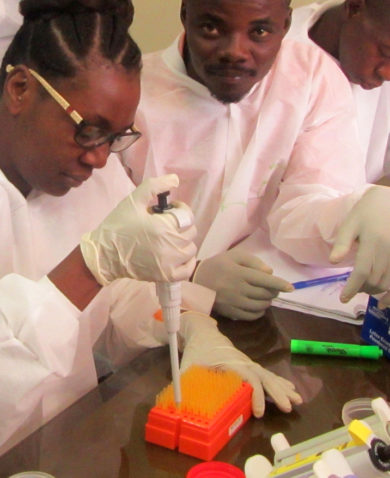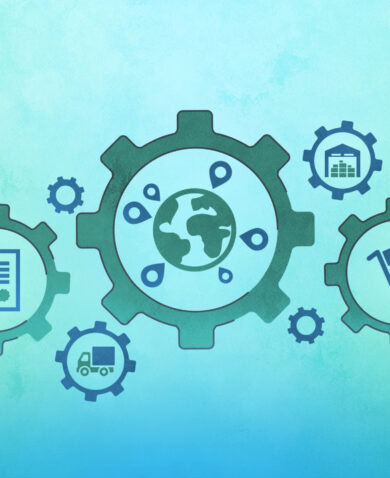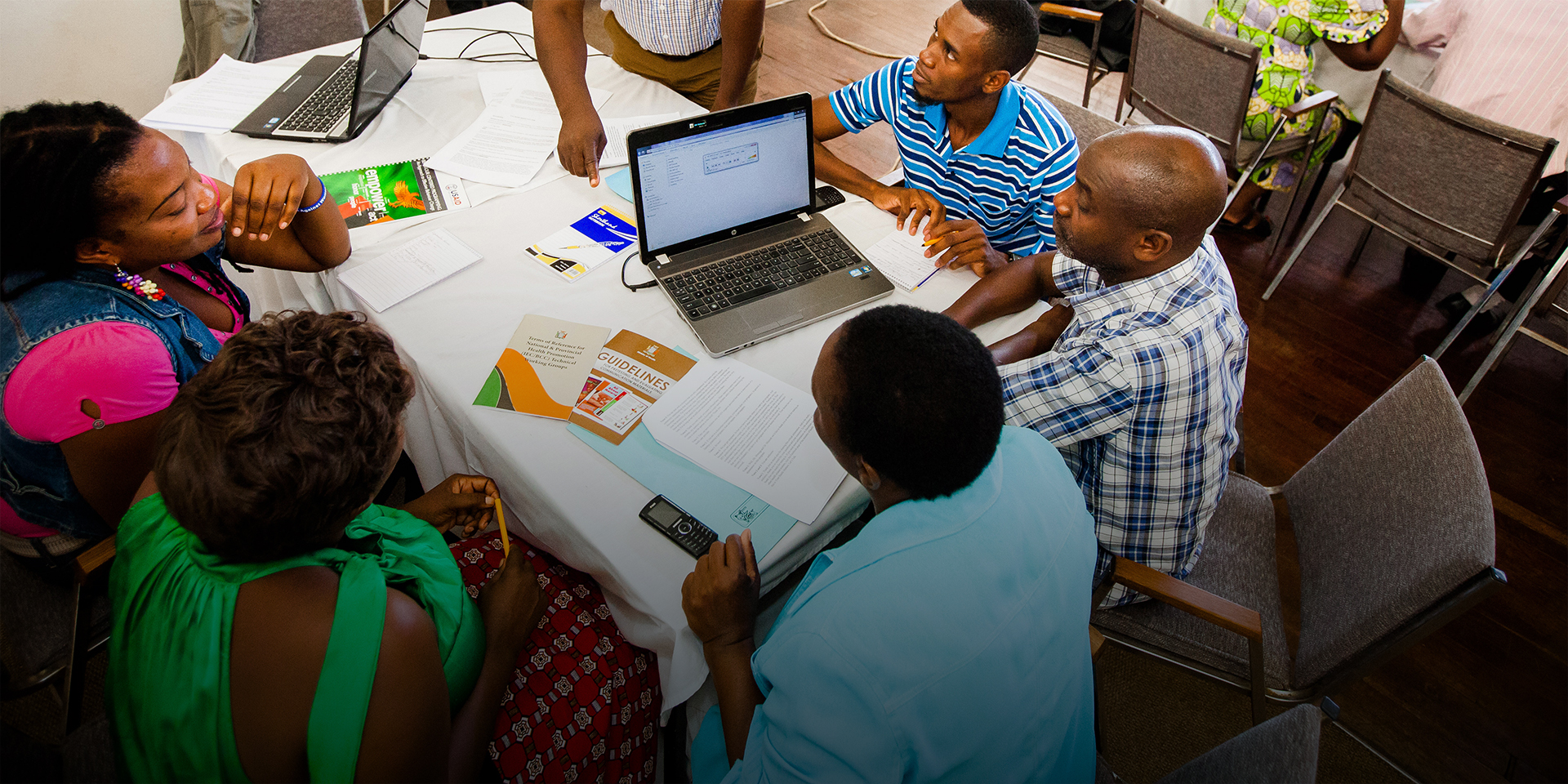
Chemonics News
News: Innovation, Technology, and Advancing the SDGs at ICT4D 2019
April 26, 2019 | 4 Minute ReadAt the 2019 Information and Communications Technology for Development Conference, experts from more than 70 countries convene to share technological innovation and explore the role of technology in global development.
Digital technology has had a profound impact on global development across sectors and in many parts of the world. From April 30 to May 3, public, private, and civil society organizations from more than 80 countries will convene for the 2019 Information and Communications Technology for Development (ICT4D) Conference in Kampala, Uganda. Now in its 11th year, the conference will bring together more than 800 humanitarian and development practitioners from more than 70 countries to explore how ICT4D is being used to enhance program quality, improve decision-making, increase impact, and accelerate progress toward the U.N. Sustainable Development Goals.
This year, Chemonics is a conference consortium partner and track lead for the newly developed supply chain conference track. Chemonics experts will lead nine sessions, with topics such as digital literacy, designing tools for low-resource environments, human-centered design, and cross-sectoral discussions about how to strategically use technology in international development.
“As a conference consortium partner and a track lead for the newly added supply chain track, Chemonics is excited to join the humanitarian and international development community at this year’s ICT4D Conference,” says Mauricio Gutierrez, senior vice president of the Supply Chain Solutions Division at Chemonics. “From supply chain management to workforce development, ICT4D has a vital footprint in Chemonics’ work. We look forward to sharing our experience and exploring innovative solutions to development challenges around the world.”
Below is the full list of Chemonics’ sessions, along with times (in East Africa time) and room locations:
Tuesday, April 30
- Big Discussion: Moving your Supply Chain Information from Data Collection to Data-Smart Decision-Making Processes – Pathways for Development and Humanitarian Organizations, 11:30 a.m. (Speke Hall): Scott Dubin, director in Chemonics’ Supply Chain Solutions Division, will moderate a panel discussion with experts from IBM, Catholic Relief Services, and Fraym. Panelists will provide concrete recommendations for organizations looking to transition from data collection to data insights. They will present their experiences and lessons learned applying tools to improve their supply chain operations in the humanitarian and development sector in frontier economies.
- Utilization of IoT, Cloud Platforms, and Drones in Warehousing and Distribution, 2 p.m. (Majestic Room): Scott Dubin, warehousing and distribution team lead, and Ashley Greve, warehousing and distribution team analyst for the USAID Global Health Supply Chain Program – Procurement and Supply Management Project, will discuss how they use the Internet of Things (IoT), cloud platforms, and drones in delivering life-saving health commodities around the world in low-resource and challenging last-mile environments.
- You, Too, Can Use Technology: Building Tech Sustainability Through Local Digital Literacy Education, 2:50 p.m. (Acacia Room): Using the USAID Sindh Reading Program as a case study, Hillary Eason, manager in Chemonics’ Knowledge, Innovation, and Technology Department, will demonstrate how to assess local partner needs and create training events and resources that build local capacity to choose and use appropriate technology. Participants will learn how implementers can draw on the Principles for Digital Development and incorporate human-centered design principles to build capacity in an interactive, engaging, and locally relevant way.
- ICT4D Learning Carousel, 4 p.m. (Commonwealth Room): The ICT4D Learning Carousel gives conference participants the chance to engage in small group learning exercises in an informal but immersive “gallery” or “carousel” format. Hilary Eason will teach attendees to use the Twine platform to build digital capacity through interactive storytelling.
Wednesday, May 1
- Tech is for Everyone: Using the PDD to Design Inclusive Systems in Low-Resource Conflict Zones, 11:30 a.m. (Sheena Room): In areas with limited connectivity, severe resource constraints, and high levels of conflict and instability, many of the digital tools used for project management and data collection are impractical. Ehsanullah Hassani will demonstrate how projects in these types of contexts can apply the Principles for Digital Development to create tools and management systems that are cost-efficient, lightweight, and useful for stakeholders with limited technology experience.
- Why Automation Works for Incident Management: A Supply Chain Case Study, 2:50 p.m. (Emerald Room): Chemonics recently implemented an automated continual improvement system for the global portfolio of health commodity supply chain projects. In this session, Quality Improvement Manager Gabriela Siem will demonstrate this web-based platform and explain how teams can use the system’s management and data-tracking tools.
Thursday, May 2
- Big Discussion: Plan, Deliver, Assess & Adapt: GIS in Humanitarian and Development Programming, 11:30 a.m. (Victoria Ballroom): Hillary Eason will join a panel discussion on the role, value, and future of geographic information systems technologies on development and humanitarian program cycles, planning, and operations.
- The Mosaic Solution: Utilizing Open-Source Tools to Create Custom Systems for Low-Resource Environments, 12:20 p.m. (Amethyst Room): For projects with limited budgets and bandwidth, commercially available cloud-based information systems are often not an option. In this hands-on workshop, management information system advisor for the USAID Afghanistan Promote: Women in Government Project will lead participants through the process of building custom information systems using free and open-source tools.
- Supply Chain Optimization and Analytics Applications in Public Health Supply Chain, 2:50 p.m. (Acacia Room): Hua Ni, supply chain optimization lead analyst for the USAID Global Health Supply Chain Program – Procurement and Supply Management Project, will explain how the public health supply chain can overcome resource challenges through supply chain optimization and analytics made possible through advancements in public health information and communications technology.
Friday, May 3
- Putting People First: Practical Methods For Designing For and With Users at Every Stage, 9 a.m.: Hillary Eason, Ehsanullah Hassani, and Knowledge, Innovation, and Technology Manager Arielle Berghammer-Ziegler will lead a day-long session using the human-centered design approach to teach attendees a variety of user research and co-creation tools that can be used to identify appropriate, sustainable technology in multiple development contexts.

